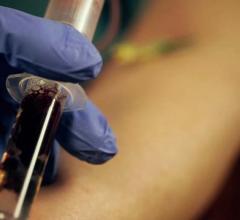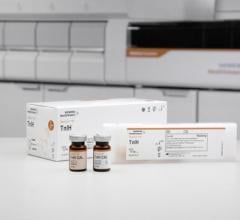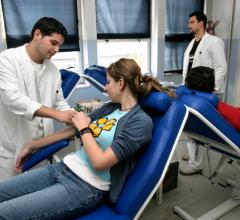
February 2, 2015 — The British Medical Journal published results online that show Abbott’s Architect Stat High Sensitive Troponin-I (hsTnl) test may help doctors to detect twice as many myocardial infarctions (MI) in women. Results showed that Abbott’s test was able to diagnose MI in 22 percent of cases for women compared to a standard of 11 percent, when using a sex-specific threshold.
The study was funded by a special project grant from the British Heart Foundation. It was conducted by researchers at the University of Edinburgh and collected data from 1,126 patients to evaluate the use of Abbott’s test in diagnosing MI.
Abbott’s test can precisely measure very low levels of cardiac troponin, a protein which at increased levels can indicate injury to the heart. This is especially important for women, who often have lower levels of troponin than men. As a result, some women may have their heart attacks undetected and undiagnosed. These factors, as well as others, contribute to inequalities in the diagnosis and treatment of women.
“Women are likely to have poorer outcomes following a heart attack compared to men of the same age,” said Anoop Shah, M.D., one of the study authors from the University of Edinburgh. “While men and women are just as likely to present to the emergency department with chest pain, men are currently twice as likely to be diagnosed with a heart attack. The high sensitive troponin test, with gender specific thresholds for men and women, may diagnose more heart attacks in women, and identify women at high risk who may benefit from targeted evidence based therapy.”
The National Institute for Health and Care Excellence (NICE) recommended Abbott’s hsTnl test, among others, in October 2014 to help doctors quickly rule out heart attacks in NHS emergency departments in England and Wales. By using Abbott’s hsTnI test, doctors may reduce the time for evaluating heart attacks by several hours compared to standard troponin tests. Among the tests included in this guidance, only Abbott’s hsTnI test offers gender specific cutoffs.
Abbott’s hsTnI test is commercially available in in Europe, as well as Canada, Australia, New Zealand, and Brazil. The test runs on Abbott’s fully automated Architect family of analyzers.
For more information: www.bmj.com


 October 09, 2019
October 09, 2019 









